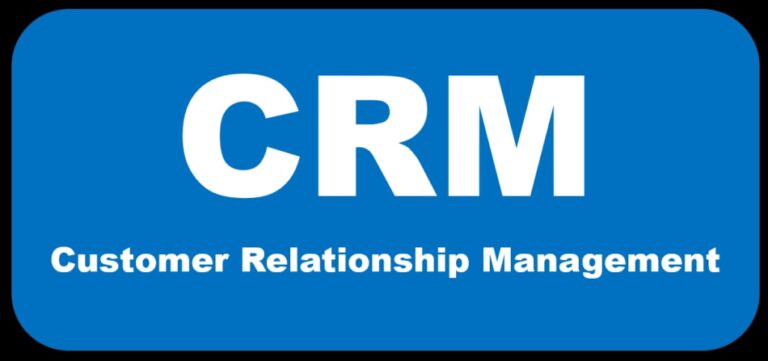The #1 problem with the explosion of CRM programs
and how you can avoid it from day one
If I only had a nickel for every time I was asked to “Say something about CRM in your training session.”
The agribusiness industry has been inundated with CRM programs. But first, a quick definition. Last month, I had a great learning moment in a workshop. I got to the part where I address CRM and how it can be a good thing. It’s important to understand that this company had a CRM program. Fifteen minutes into my discussion and one of the senior salespeople stopped me. He said, “You need to start by explaining what CRM is or at least what the acronym stands for.” My assumption was such that if they had the program, certainly they knew what it stood for. However, it was a good reminder for me. (Thanks Kevin).
CRM stands for Customer Relationship Manager. It is a software tool that allows you to combine all the information for your customers into one platform.
The quick history: Way back, we had accounting systems, hard copy customer files, and operation systems. All operated completely separate from each other. Then we got creative and managed much of this information using some form of Excel. Along came software programs like Gold Mine in the 90’s and now Salesforce today. These programs promise to do just about everything imaginable for the customer experience by automating their information into one location.
The Problem: It starts early in the selling process. When the CRM salesperson calls on a company, they start at the highest level: CEO, CFO, or VP of Sales. They first sell them on the concept of all the great things it will do for managing and monitoring sales results and activities. They also sell our senior managers on the idea that all of the in-depth customer information will be stored electronically. This means if a salesperson leaves the company, the next person “just picks up right where the previous person left off. Easy as the click of the mouse.”
Then our CRM salesperson drops the price tag into the discussion.
Pricing runs the gamut. It could be as low as “free as part of buying their accounting software” or as high as $500/month per user. That’s 30 salespeople at a cost of $15,000/month. “Wow, our CEO might say. How do we justify that kind of expense?” Remember, that only includes the sales team. If you want customer service, accounting, and operations people entering information, then they too have to have a subscription. That would push the price too high, so the decision is made to just put the sales team on it.
The bad decision: With that decision, we have created the start of an expensive problem.
The typical downward spiral:
- The software is purchased, but only for the sales team.
- A minimal training session is put on by the CRM provider. This might even be done via zoom or worse, recorded virtually. Making it an even less enthusiastic launch.
- Our salesperson multi-tasks during the training and understands very little about the benefits and even less about how to use the program.
- That training is the last time they log in for months.
- They forget their password and come to the next sales meeting with absolutely zero engagement with the program.
- The sales leader may do one of several tactics to get the sales team engaged:
- Ask them to get better at it. not usually effective
- Demand it. sometimes this might work a little.
- Threaten commissions, and in some cases their employment if they don’t
- The final results depend on the tactic implemented. And I have seen all of them fail and some of them succeed for a moment in time. Not sustainable.
- Often, the decision is then made to discontinue the CRM. This might be the right decision if sales team adoption cannot be achieved or would cost too much.
This article is not a how-to on making your CRM a better tool. I have those articles and blog posts that you can access:
Does your sales team struggle with your CRM program?
The Love-Hate Relationship with CRM – Part 1
This article is designed to start you down the right path to gaining the adoption of your CRM by your sales team. To do that, you must do the one thing I rarely see companies do.
The solution: Start with your sales team! It’s that easy. The minute you accept the appointment from the CRM salesperson, let them know you will have several of your best salespeople at the meeting. I guarantee you the sales presentation will not be the same. No longer will they discuss how the company can monitor salespeople’s activity or can easily swap one departing salesperson for their replacement. If so, your top salespeople will reject it immediately. Great! You just saved thousands of dollars and hours of precious time.
However, you might be of the mindset that you will just make your sales team use the program. Please don’t underestimate the negative impact that will have on your team. Especially on your top salespeople. I have seen some very heated meeting discussions on this topic, which I don’t think the management team ever expected.
In one company, turnover was high on the sales team. During the launch of the CRM program, the CEO kept mentioning how great it would be for new salespeople to have all this customer information and the company wouldn’t lose a step when salespeople left. As a coach to this CEO, I had to let him know how that message landed on the salespeople he was telling this to. That audience heard, “You are probably going to leave or be terminated and with this CRM program, we will have all your information in our software.” While he didn’t mean it that way, that’s exactly the way it sounded.
What to do if you have already bought the program, launched it, and are struggling with your sales team using it?
- Immediately identify your core salespeople you need to help advise you.
- Call the CRM salesperson who sold you the program and get them into a meeting with that core group of salespeople.
- At that meeting or series of meetings, let your provider know that if they don’t get this group of salespeople engaged, no one will engage. You will have no choice but to discontinue the program.
Last thought. If you mandate it or force your sales team to use your CRM, you will get compliance. They will open it up, check some boxes, and put in a note here or there. However, the power of CRM is not through compliance. It’s through engagement.
If you would like help in this area, please reach out. It may not have shown through in this article, but I am a big proponent of CRM…if done right.


